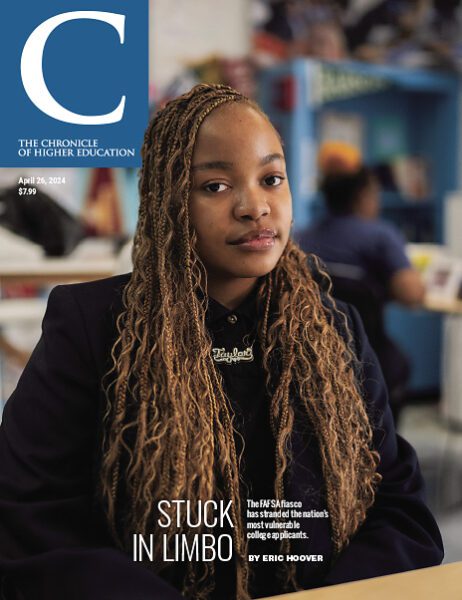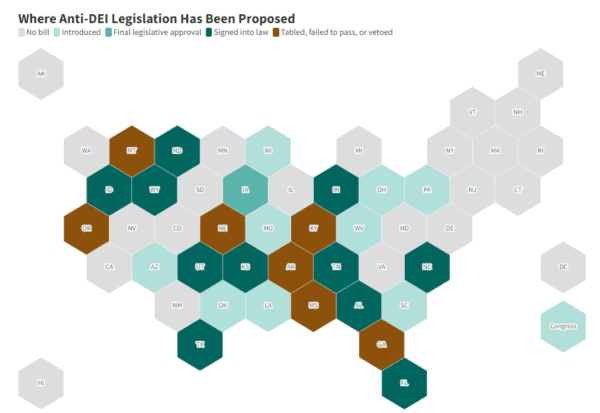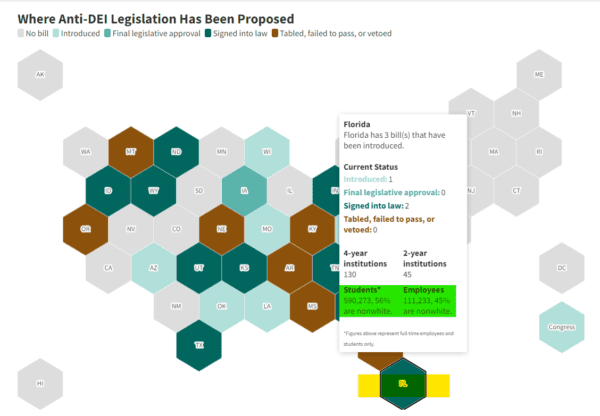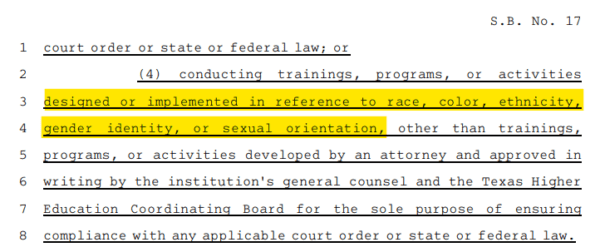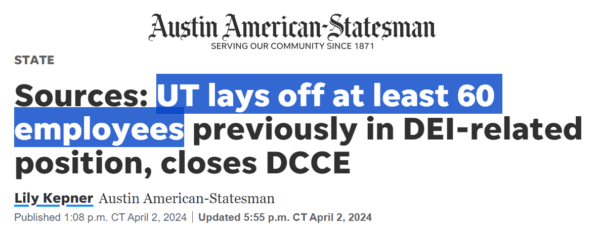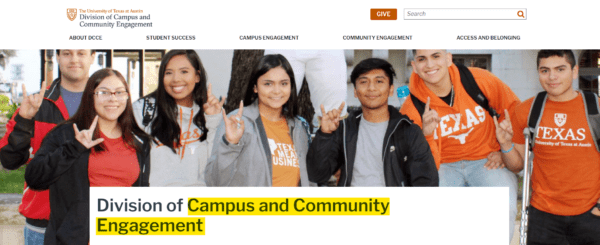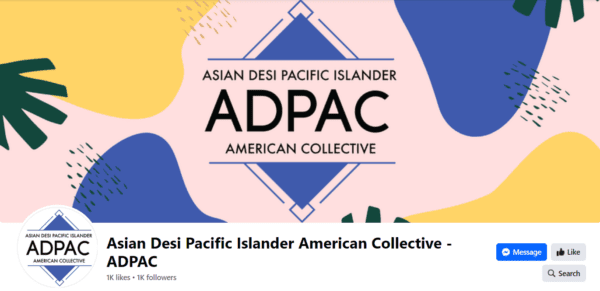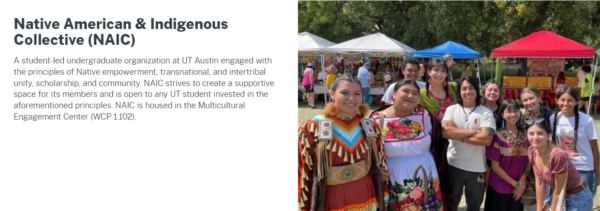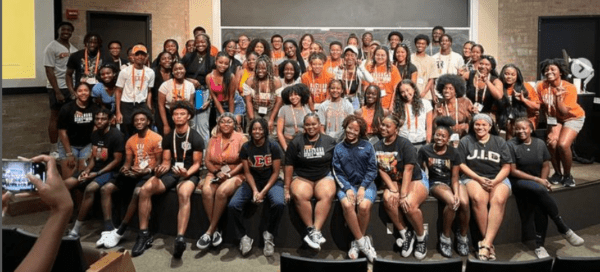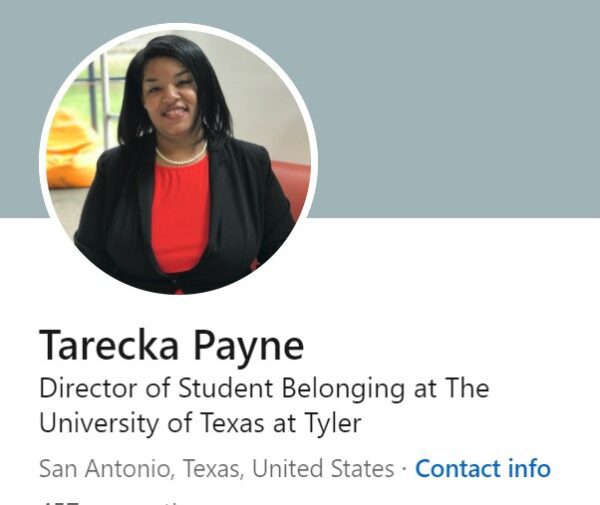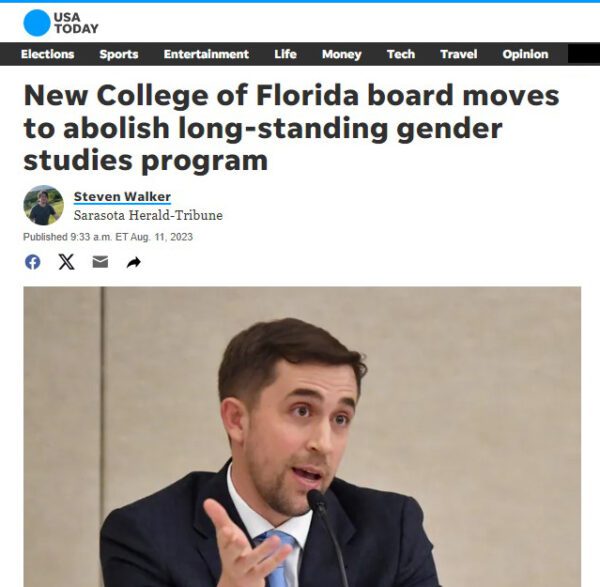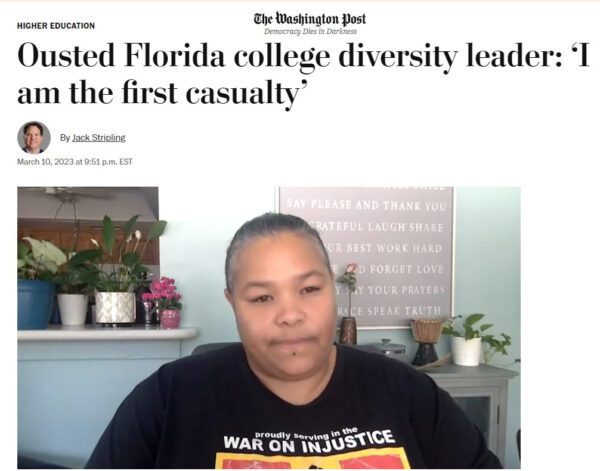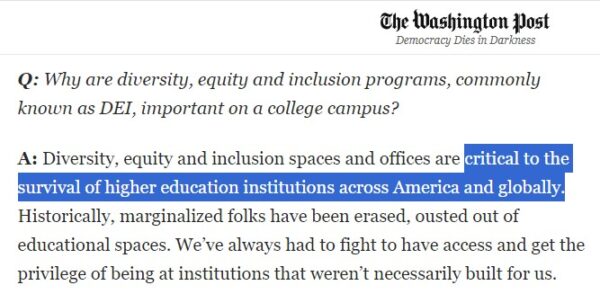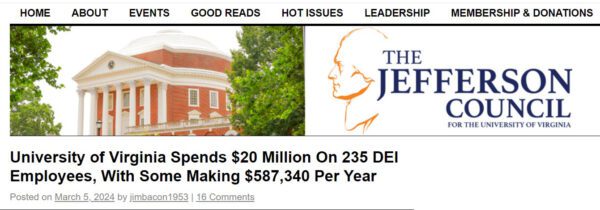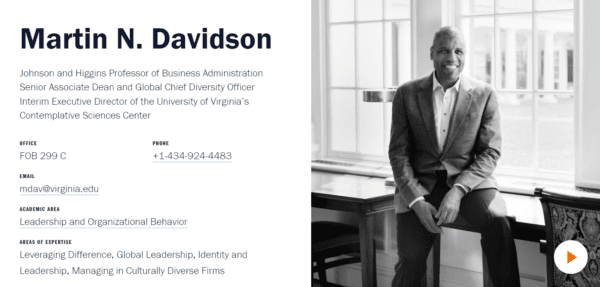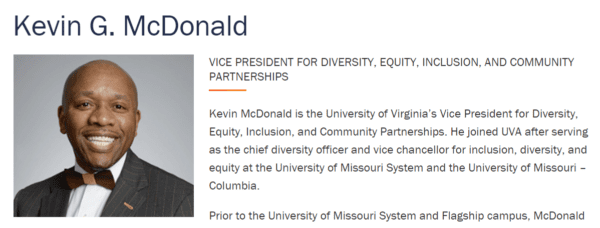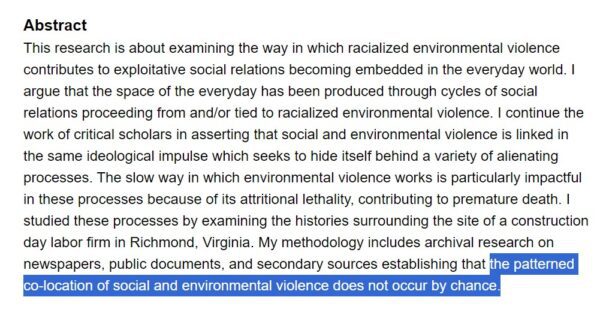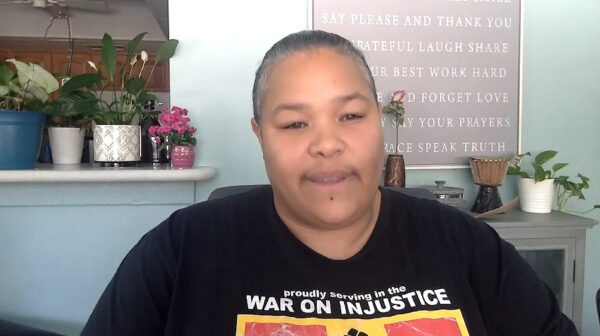Where DEI Comes to Die, by Jared Taylor
This video is available on Rumble, BitChute, and Odysee.
The fight to get rid of diversity equity and inclusion in higher education is one of the best things to happen in a long time. State governments are finally waking up to brazen anti-white discrimination — paid for by tax dollars — and doing something about it.
The best website for following this is run by a lefty magazine called The Chronicle of Higher Education.
This is this month’s cover, and its number-one “highlights” article is “Singled out: Why Texas A&M’s Lone Black Professor of Nursing Called It Quits.” This is what it feels like to be in the cross hairs of the campaign against DEI.”
The Chronicle tracks — with horrified fascination — every bill ever proposed to eliminate DEI.
All the colored states on this map have at least introduced bills.
The dark greenish color, including Florida and Texas, means a bill has passed. There are no fewer than 11 such states, including Tennessee, North Carolina, and Indiana. Light turquoise states — there are nine — have bills pending, and the brown ones — there are seven — have introduced bills, but they were tabled, voted down, or vetoed. Put your cursor over a state — here I have chosen Florida — and a box pops up to show the bills introduced there.
The box also shows the number of students and faculty in the university system and percentages that are non-white. Florida has 590,000 students, and 56 percent are non-white. Even in the whitest system, South Dakota, 16 percent of students and 14 percent of employees are non-white.
Which state is darkest? California. Seventy-four percent of students and 53 percent of employees are non-white.
The site also covers two bills introduced in Congress.
Note, also, that for the entire country, 46 percent of students at public colleges and universities are non-white.
So, what’s happening in Texas, the state that has eliminated DEI for the largest number of students — 840,000? On June 7 last year, Governor Greg Abbott signed SB 17, which banned anything “designed or implemented in regard to race, color, ethnicity, gender identity, or sexual orientation.”
The law also forbids “differential treatment” or “special benefits” and, of course, the very purpose of DEI is special benefits for certain people.
The law explicitly does not ban some things. Professors can jabber about DEI in class. Guest speakers can promote it, and so can self-funded student groups. But official college activities must be neutral or the school loses money. State Senator Brandon Creighton, an 8th-generation Texan, has been fierce about reminding colleges that compliance will be strictly audited, and there will be severe penalties for cheaters.
Administrators got the message. Last month the headline was “UT lays off at least 60 employees” who were in the diversity business.
UT Austin at first tried just changing the name of its diversity office to Campus and Community Engagement, but finally realized it had to shut the whole thing down and fire its 40 employees.
Dozens of exotic student groups lost funding.
QTBIPOCA — Queer Trans Black Indigenous People of Color — will now have to pay for its own queer prom.
The Asian Desi Pacific Islander American Collective will have to go it alone.
If it wants an Asians-only “GraduAsian,’ it will have to pay for it off campus.
Afrikan (spelled with a K) American Affairs lost its free office space, and Black by Popular Demand, the Afrikan graduation ceremony won’t get any university support.
The Native American Indigenous Collective can no longer hold its annual powwow on campus.
The native Americans danced and prayed and ate fry bread at a rec center instead.
The powwow, standing in contrast to the government, the patriarchy and colonialization, can represent “an act of resistance” and strength passed down through generations, Murguia Vazquez explained.
The New Black Student Weekend won’t happen anymore, so the new black students won’t be able to choose between Team Killmonger or Team T’challa, poor things.
And on it goes. I’d love to see a full list of all the “coalitions” and “alliances” and celebrations and festivals that are out in the cold. There were complaints of “overcompliance.” The so-called Monarch program that helped illegal immigrants at UT shut down, even though supporters said it wasn’t covered by the rules.
UT-Austin is taking the ban seriously, but officials at lower-ranked places were caught on camera explaining how they skirt the law. Marcus Brown of Tarleton University, shown here, explained that the “first-generation initiative” was a “Trojan horse” for DEI, and it was “all wrapped in one.”
At the University of North Texas, Joe Posada-Triana said he just changed DEI to “belonging” and carried on as before.
Tarecka Payne still has a LinkedIn page that says she’s director of student belonging at UT Tyler, but this article says she was put on leave after she said she had changed the name of the diversity office three times as a “creative” way to ignore the law.
Florida also axed DEI. It has been closing offices, firing people, saving money, and has even dismantled at least one whole department, the gender studies program at New College. The trustees — Chris Rufo is one of them — decided it was a “political ideology” rather than an academic discipline.
Some Floridians are singing sad songs. When the DEI bill passed, the head of the Florida Democrat Party said, “this legislation will absolutely destroy Florida’s world-class higher education system.”
Yoleidy Rasario-Hernandez, shown here, lost her job as a diversity officer. She says she is BIPOC and trans and her pronouns are ze/zer. Ze says DEI is “critical to the survival of higher education institutions across America and globally,” and that abolishing it is “white nationalist rhetoric of racism.”
There are many, many jobs ripe for the ax all around the country. The University of Virginia spends $20 million on 235 DEI jobs, and the top guy makes $587,000 a year.
That lucky fellow is Martin Davidson, who is paid more than three times as much the governor of Virginia.
And this guy, Kevin McDonald, has a pay package worth $522,000.
I’d like to know, when they cash those fat checks: Do they ever thank their lucky stars they are living at a time when the white man went certifiably insane?
They have white understrappers like this Rachel Spraker, the ideal end product of American higher education.
She is a they/them, who says she is from “what is now called Virginia, on the traditional territory of Tutelo people.” She wrote her master’s thesis on “landscapes of racialized violence” and explained that “the patterned co-location of social and environmental violence does not occur by chance.”
Whitey did it.
There is something called the National Association of Diversity Officers in Higher Education.
Here is its board of directors. It claims to have “more than 2,200 members and growing.”
You would think they would be offering seminars on career change and resume writing, but no. At its annual meeting last month, they were handing out “Inclusive Excellence Awards.”
The entire profession is clearly illegal, of course. There are hundreds of federal and state laws that ban discrimination, but these people practice it brazenly.
It’s about time a few sensible state legislatures — 11 and counting — stopped this madness. It shows what you can do when you control public spending. Nothing but lack of will stops lawmakers from getting rid of every publicly funded department of grievance studies: blacks, women, Latinx, Asians, queers, you name it.
This could be the start of a new kind of federalism. Let some states spend millions on Queer Trans Black Indigenous People of Color while other states spend it on teaching and research. Of course, we’ve been warned what will happen.
This lady — I think — who just lost her — I think — job, warns that higher education won’t survive without people like zir.
I’m willing to take the risk.

